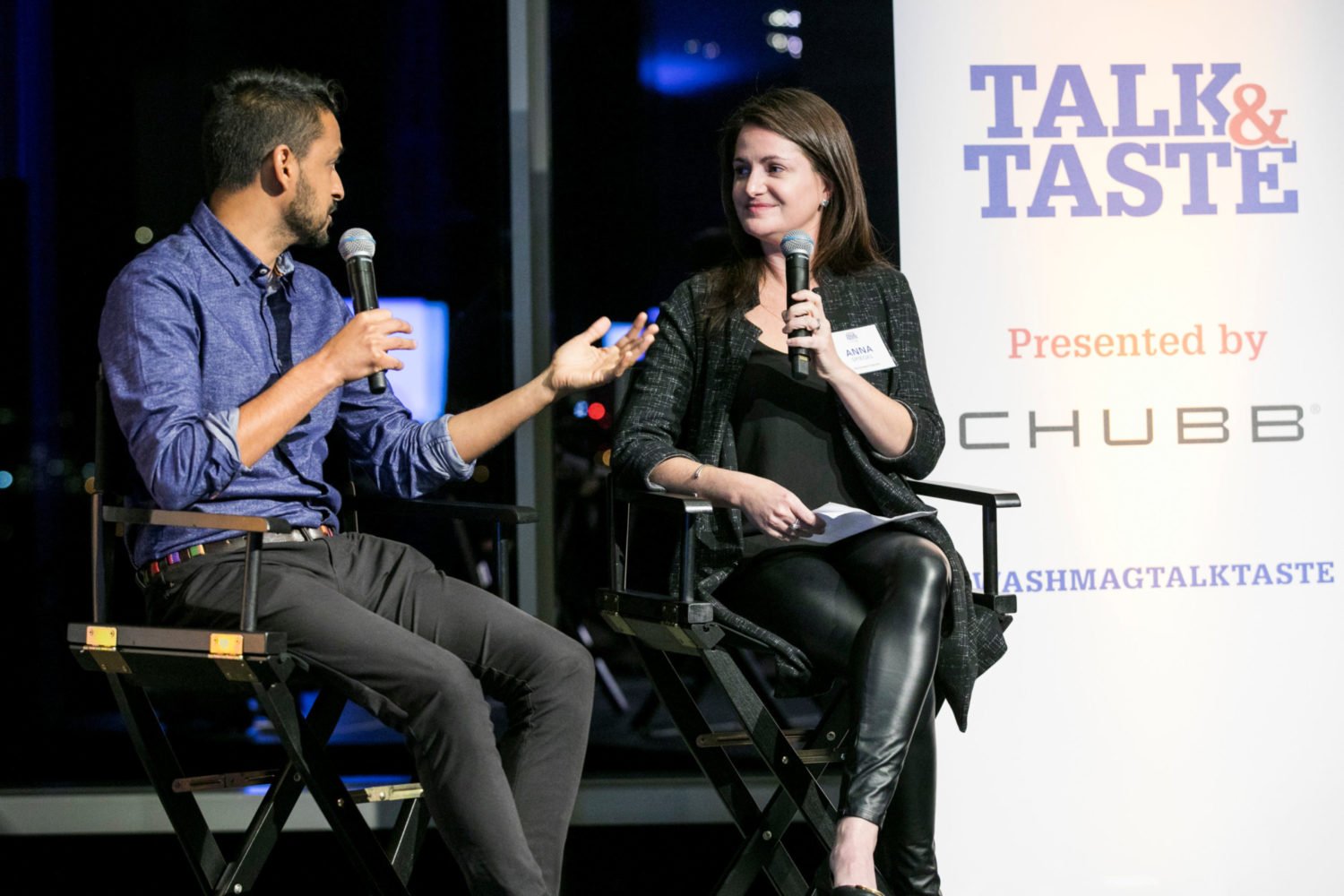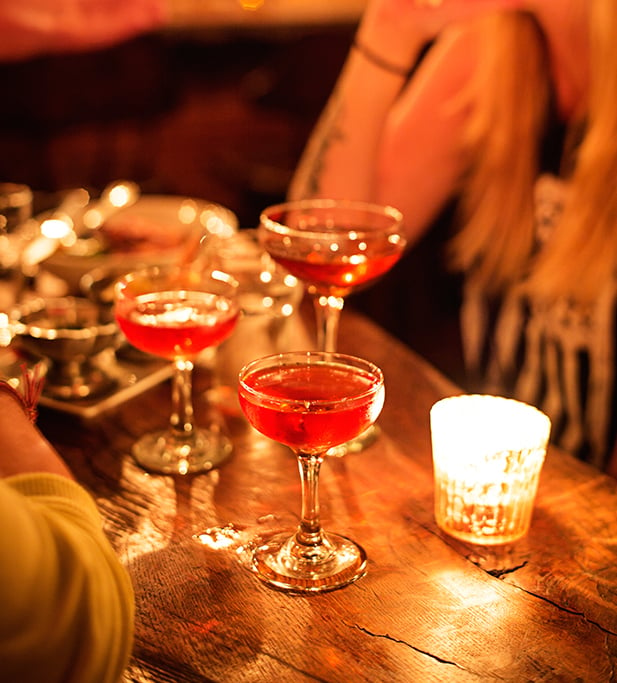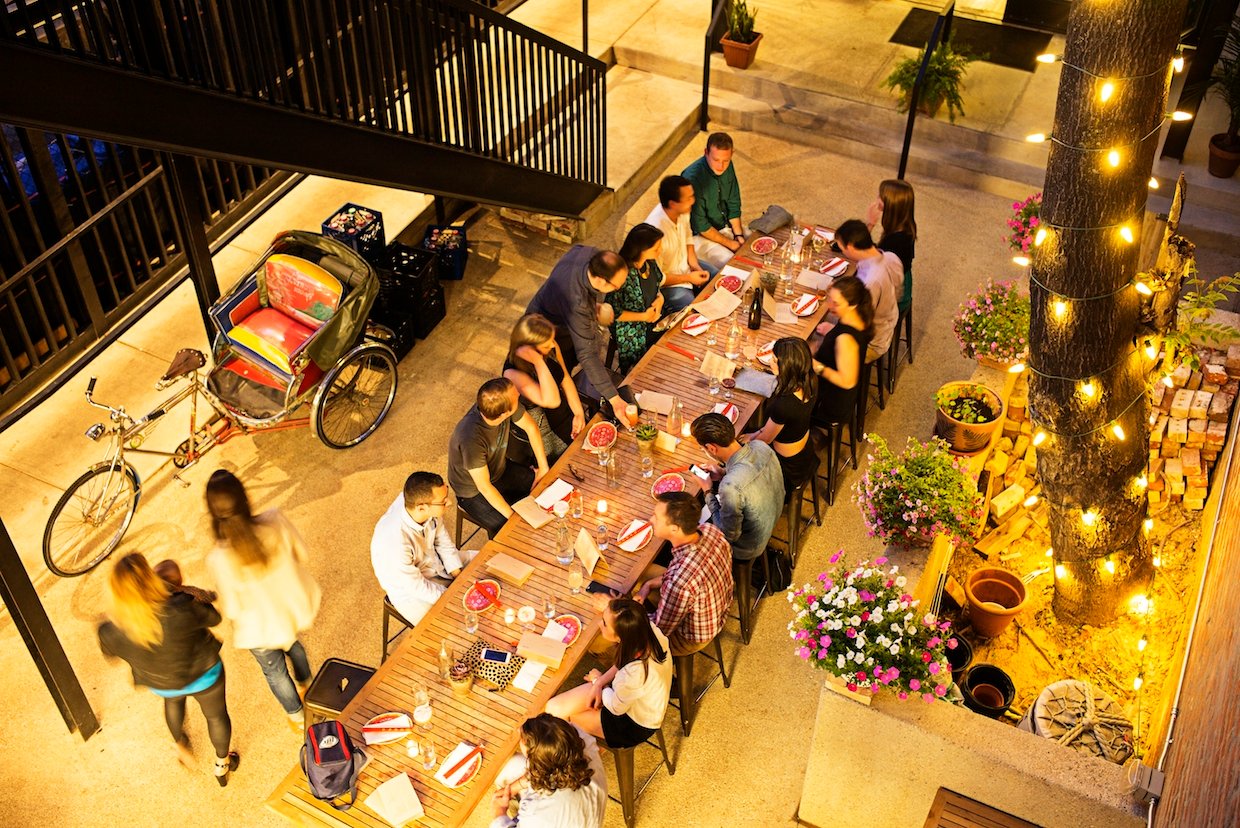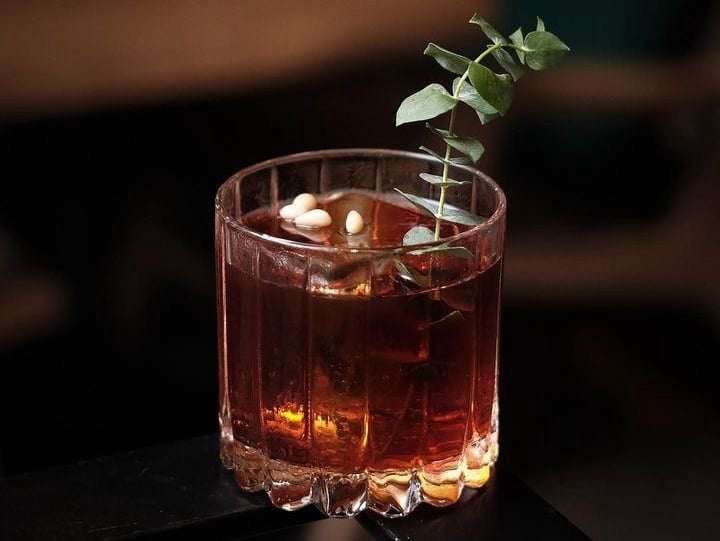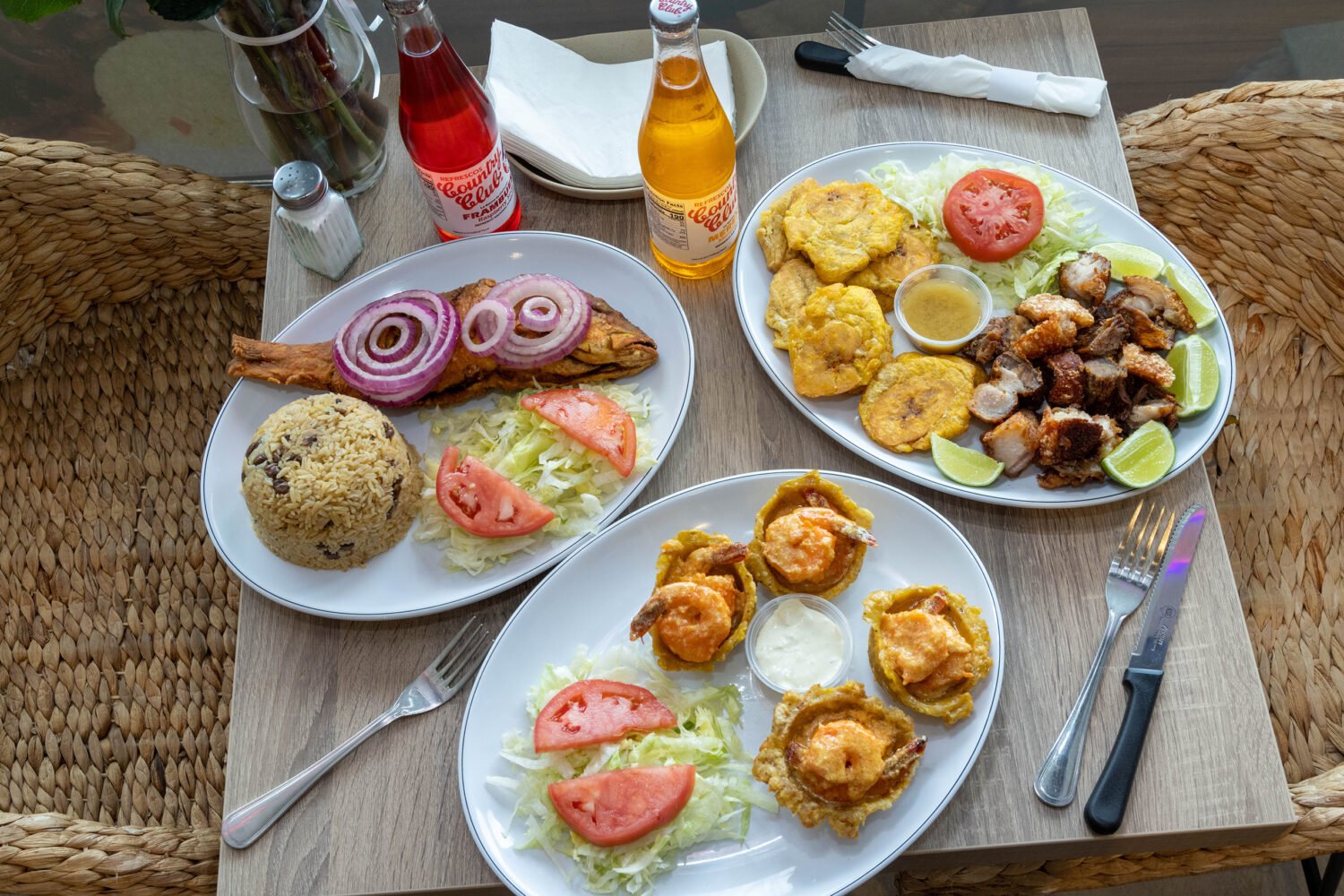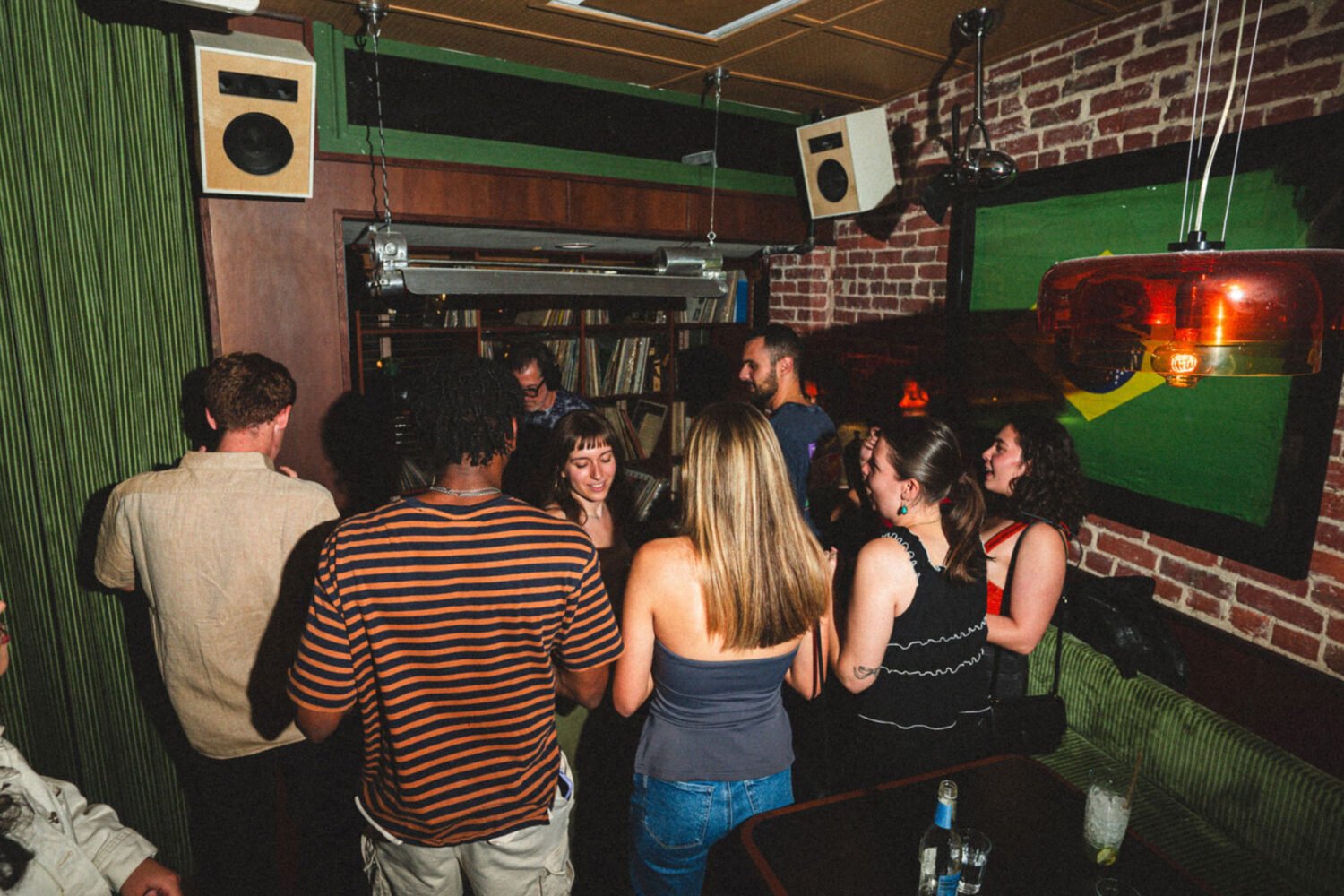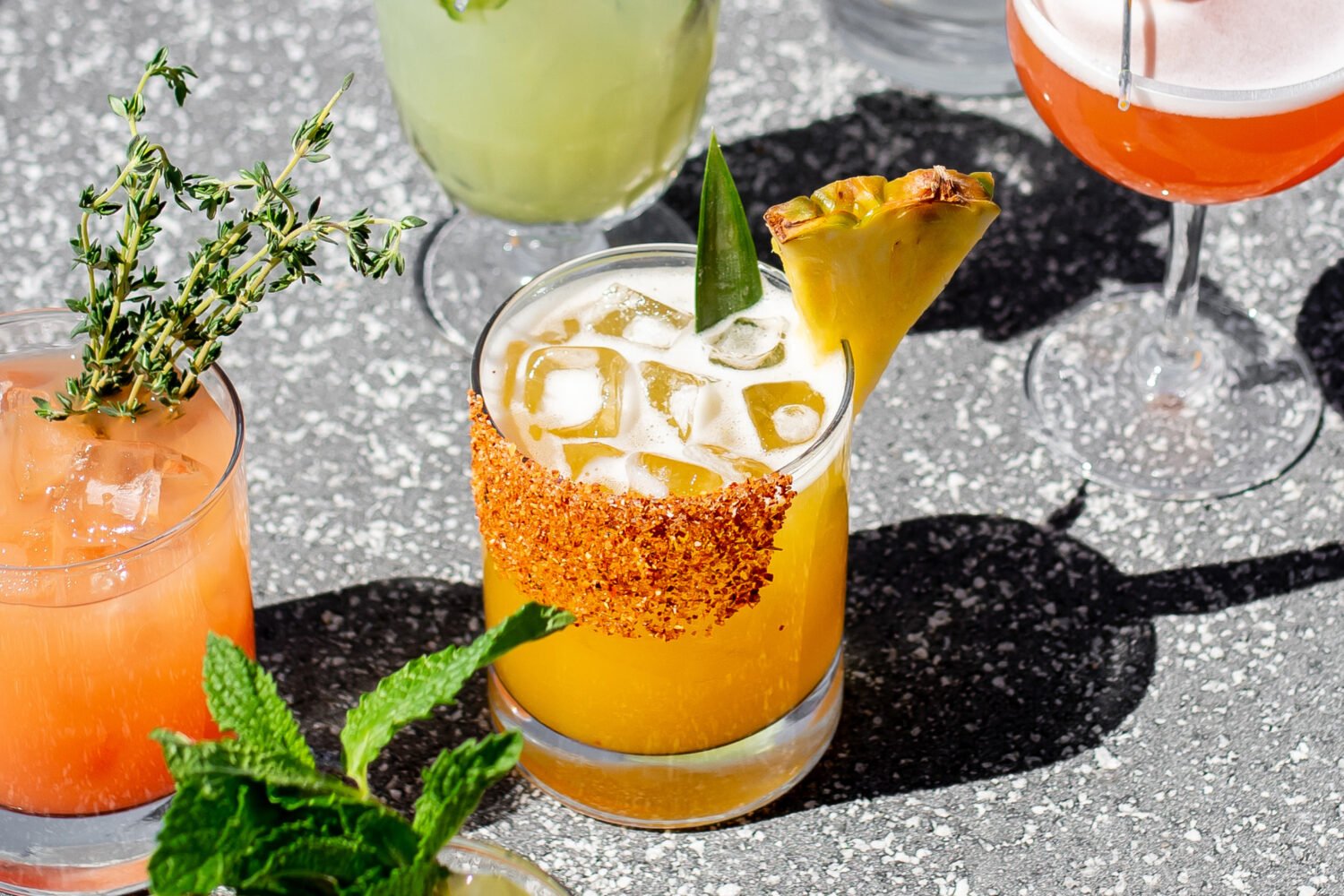Critic Todd Kliman is traveling in Ethiopia for the week, and if you’ve missed his regular chat, you can follow his culinary adventures via Twitter. Instead of the regular Kliman Online session, we brought together some of the hottest culinary topics that have popped up multiple times in the past few weeks, from reservation policies to overpriced cocktails and controversial corkage.
CONTENTIOUS RESERVATION POLICIES
RESTAURANTS WITHOUT RESERVATIONS: LACK OF RESPECT FOR THE CUSTOMER AND MANAGEMENT ARROGANCE:
I would like your take on restaurants like Rose’s Luxury with no reservations and waits that can approach three hours.
I think these kinds of waits show a fundamental lack of respect for the customer and indicates a management arrogance that no matter how good the food is uncalled for.
What kind of evening out is it when you might sit down somewhere between 7:30 and 10:30? In my opinion it is just too precious.
Todd Kliman:
None of us likes waiting for a table. Ever.
But is it a lack of respect for the customer? Arrogance, maybe. A restaurant is saying, We don’t need to worry about booking in advance; the crowds will come.
Many restaurants that don’t take reservations have told me that they’re making it possible for more people to dine there, not fewer. Think about places like Minibar and Komi, where tables tend to be booked a month in advance. A no-reservations policy ensures that diners won’t have to contend with that kind of circumstance.
In a sense, it’s not much different, in spirit, from what the Minibars and Komis of the world do. In both cases you, the diner, spend inordinate amounts of time jockeying to get in somewhere. At the extreme high end, it’s over the phone, and in many cases you will try for days and even weeks, hoping for a waitlist opening, taking a table at an inconvenient day or hour just because you don’t want to keep waiting, etc. With a place like Rose’s or Little Serow, you do that waiting outside, on the day of.
Either way is annoying, yes. Very annoying.
But you don’t have to play the game. That’s the thing. You don’t have to. There are dozens upon dozens of good places to eat, and they’ll be glad to have you. And you won’t have to book so far in advance that it becomes an event in your life, and you won’t have to stand in line in the cold for an hour or two, or wait at some bar until they text you.
RESERVATIONS AND LACK OF RESPECT, CONTINUED:
I certainly don’t think no reservations is lack of respect.
These are small restaurants that can’t afford party of four or six not showing up or being late. Some things are worth waiting for, and I am willing to show up and have a drink at the bar or nearby to get into those places. They are trying to keep costs down. Reservations systems and/or having someone to take reservations are costly, not mention they can lead to errors on either side—why even risk it if you have enough customers willing to wait and eat your food every day?
I think it is the customers who are disrespectful when they make reservations and don’t show up (a regular occurrence, as restaurateurs know, and a major headache for managing your staff, reservations, and customer satisfaction). So I prefer a restaurant that chooses to focus on food quality and taking care of customers who are there, and I am willing to wait and pay for it happily.
As a matter of fact, I don’t like restaurants that have the attitude of “Do you have reservations?” when I show up at a place (work and other commitments don’t allow such long-term planning) and am treated like third-class citizen. I feel like saying, “I am here, aren’t I?” I understand the need for it, but in my opinion if we show up without a reservation we still deserve respect, and all I expect is, “Let me see what I can do”—even if that means a one- or two-hour wait.
Attitude is what makes me become a regular at a place, and those with a positive attitude get my business (often), whether they have a reservations policy or not.
Todd Kliman:
You make a very good point about the size and focus of these places.
A good bit of what drives the decision to go without reservations has to do with size and money.
I think there are people who look at all restaurants as essentially the same. They have food, they have drink, they serve me, I pay them money and I go home. In that sense, all restaurants are alike.
I think that some people, when they walk into a small, unflashy restaurant, don’t realize what they are walking into. They think they are walking into a small restaurant. They don’t think about why there are only a dozen dishes on the menu. They don’t consider that some things in that space have had a lot lavished on them, and others have not, and why that might be.
They want great food and great service and great ambience. And we all do, all the time. But they don’t reckon with how that is to happen in a tiny space, with a small staff, given the limited resources.
The fact that smaller operations can achieve all three things is remarkable, and deserving of support and understanding. It’s much harder when you’re not a hotel, or you don’t have big-time investors.
RESERVATIONS AND LACK OF RESPECT, CONTINUED:
Is the original poster’s issue with the wait at Rose’s Luxury that they are inaccurate in their estimate and he/she ends up waiting three hours, or that they show up and hear that the wait is three hours?
If the former, I’d be mad if they quote 30 minutes and it ends up being three hours; if the latter, why would you wait that long? I assume these are weekend nights, not Tuesday wait times.
Todd Kliman:
It’s a good question.
I hope we get clarification before the chat is over.
I just assumed it was a general annoyance at having to wait at all, given the broad-brushed comment about arrogance and lack of respect.
As to why would anyone wait that long—my theory is that it really has nothing to do with the food and drink. If it did, there are, as I made a point of saying earlier, plenty of other options. A new restaurant is, for many people, a boasting point. And especially a good new restaurant, a restaurant other people are talking about.
This is, remember, a city of people who are constantly looking for a way in and up, a city of name-dropping and résumé-building and naked and relentless social positioning. In that sense, I guess three hours is worth waiting if you can join the conversation.
RESERVATIONS, CONTINUED:
If you don’t take reservations you may not get my business on Friday or Saturday night.
Now, I have worked in restaurants and done everything but manage, so I understand the business. My time is valuable to me, and I am sorry it may not be to a place like Rose’s Luxury.
Sorry, I don’t want to wait three hours so you can have buzz on Twitter. I don’t consider asking if you have a reservation having an “attitude,” and call-ahead seating is a reservation by any other name.
Reservations also give a restaurant an idea of what to expect that night. Making me wait for one to three hours for a table is not taking care of me, since I know a Benjamin will resolve this issue within 20 minutes or less. My bro was out with clients, and the clients wanted to hit Rose’s. They went, and my bro paid the toll to move to the head of the line. Let’s see how long the buzz last for Rose’s when they are no longer the talk of Twitter and folks aren’t willing to wait any longer for a seat. This happens all the time.
Todd Kliman:
Thanks for chiming in on this—though I don’t buy that the hosts at Rose’s took a bribe to bump your brother to the front of the line. Do you really expect me to believe that?
Your point at the end, however, is a good one, and restaurants would do well to remember that things change.
Places come and places go, reputations rise and reputations fall, today there’s buzz and tomorrow there’s—
“Wait, what’s that sound?”
“I don’t hear anything.”
RESERVATIONS POLICIES, CONTINUED:
This talk about “arrogance” and reservations policies from last week was pretty funny.
In my experience at Rose’s (which includes a three-hour wait), the staff was as friendly and pleasant as could be. The downside of “creating buzz” through a three-hour wait (Twitter, etc.) is that guests are inclined to consider the three-hour wait in their opinion of the food. For me, yes, it was excellent food, some of the best I’ve had. Was it “three hours better” than, say, Montmartre around the corner or any number of strong places where I could’ve had reservations that night? I’m still on the fence.
You also brought up last week the cultural capital question, that this is less about the food itself than the bragging rights of eating there. Hard to deny that, but that same dynamic is at work in those of us who scour the suburbs for the hidden gems in a Fairfax or Rockville strip mall. Both require the free time to pursue food and eating as a pursuit rather than a necessity.
Todd Kliman:
I think it’s very, very different—although you make a good point about eating as recreation and all that that entails.
I can tell you just from personal experience that when I tell people I know about a great ethnic gem—I’m talking about people who don’t live for food, now—they’re often mildly interested at best. They’re far more interested in hearing about the hot new place, or the place with the chef they saw on TV. People love to feel plugged in. They love to be able to talk about what everyone else is talking about. It’s a form of currency.
They can do that with, when it opened, Le Diplomate. They can’t do it with a place like Thai Taste by Kob.
Back to reservations for a second. I think you make another good point, about people factoring those long waits into their evaluations.
I’m interested to see how this no-reservations thing continues. And it will continue, because the kinds of restaurants that are coming are, generally, the kinds of restaurants we’ve been seeing for the past couple of years.
I think it can’t help but to reshape the landscape—just as the shift eastward (restaurants in Shaw, Mount Vernon Square, Bloomingdale, the Navy Yard, etc.) already has. Older people are not inclined to stand out on a Friday or Saturday night for more than an hour and a half to eat dinner. People from the suburbs, the same. People with kids. People celebrating an occasion. . . .
Where are these people turning when they want to go out to recognize an important night in their lives? The pool of candidates is shrinking, and many of the restaurants that are doing exciting work are not taking reservations.
CONTROVERSIAL CORKAGE
DRINKING ETIQUETTE: A QUESTION FROM A BARTENDER:
Hey, Todd,
Wondering if you could weigh in on this:
I tend bar in a restaurant that happens to have a very low corkage fee for bottles of wine brought in by guests to enjoy with their dinner. Usually this perk is a dining-room luxury, where there’s almost always enough diners at the table ordering multiple courses, as well as bottles of wine off our list, to make up the “lost” revenue from the personal bottles.
Recently, however, an older gentleman has taken to bringing bottles of wine to enjoy at the bar, and almost always on a weekend night. Restaurant policy caps the number of outside bottles guests are allowed to enjoy at two, but this gentleman has been known to bring in three, sometimes four. He’s perfectly pleasant, and when he doesn’t come in with friends to share his juice, he gladly pours out multiple glasses for whoever happens to be sitting next to him at the bar at the time.
Problem: I almost always have to dragoon the gentleman into ordering something—anything—off our menu, so more often than not, his tab is solely the corkage fee times three or four bottles. That’s lost revenue for the restaurant on the seats occupied by the gentleman, his friends, and/or whomever happens to be lucky enough to be seated close enough to enjoy his largesse.
Furthermore, he always tips about 15 to 18 percent on his severely discounted tab—I’ve had him, on more than one occasion, spend more than two hours at my bar and stumble off into the night with eight bucks to show for my efforts. I obviously eat what I kill in this line of work, so it’s eventually going to reach a point where I start to resent his presence at the bar on what I would like to be a busy weekend night.
Who should say something to the gentleman? Should anything be said? I’m obviously not going to, but should management? Where do you stand on tipping on corkage fees? Should the restaurant drastically raise said fee? That would screw over every other guest who has ever tipped more than graciously on their discounted bill. Your thoughts, please.
Todd Kliman:
You should resent him. So should the GM and owner of the restaurant.
What this man is doing is narcissistic, pompous, and insufferable. He’s using the bar as his own personal stage—hoarding seats, showing off to friends, being the life of the party—all while not really paying for the privilege.
If you want to drink three or four bottles of your own wine with friends, there’s a place for that. It’s called home.
DRINKING ETIQUETTE: A QUESTION FROM A BARTENDER, CONTINUED:
I’m gonna have to concur with you on this one—and I would’ve been even more harsh.
I wouldn’t even think of bringing ONE bottle to a bar, let alone three or four.
It’s one thing to bring a bottle for dinner—one of the many things I love about the PHL dining scene is the plethora of BYOBs with no corkage or ridiculously low corkage; the fact that a place in DC does it, with the District’s byzantine liquor laws, is to be applauded.
But boo, hiss to management for not having a friendly chat with this joker about what he’s doing. He’s effectively stealing money from staff, and the fact that he is nice doesn’t take away the notion that he’s at the very least stiffing the bartender.
Clowns like him are the reason why so few places offer perks like BYOB—well, that and the aforementioned liquor laws.
Todd Kliman:
It’s true.
He’s the bad apple—a spoiled, rotten apple, actually—who ruins things like this for everyone.
What gets me is the arrogance and entitlement. To just assume that the world is your playpen, and that everyone in your midst should fall in line.
FOLLOWING UP: THE MAN WHO TAKES (EXTREME) ADVANTAGE OF CORKAGE:
I missed getting this in before the chat ended last week, but I’d wonder if the gentleman abusing the corkage policy might just be lonely.
There is no reason the restaurant can’t require a food minimum per party along with their generous corkage. Even if it’s only $15 per person, it gets a message across.
And, it hadn’t even occurred to me that you can get the corkage deal sitting at the bar. I think of that as something reserve for people at tables getting a meal.
Todd Kliman:
Might be lonely.
You might be right.
Might be that four bottles of wine from home is his way of making friends.
But the issue here is his abuse of a policy, and his making the bartender who wrote in do his nightly bidding.
Right? I mean, we all have our struggles and demons, we all have things that beset us and trouble us, things we stew over and think about far too often than is good for us. And some of us recognize, at the same time, that we are in the world, one of many, and not the show in its entirety.
The thing that’s odd in this story is that the restaurant apparently has no problem with this man coming in and doing this. Only the bartender who has to deal with him, it would appear.
CORKAGE, CONTINUED:
I enjoy bringing bottles to restaurants, and I don’t see any reason to feel guilty.
The last time I brought a bottle to a restaurant, the som walked by and instantly recognized it as something that didn’t come from his cellar. We chatted about the wine, and he offered his insights,which were actually interesting.
He got a taste of the wine, the restaurant got its $25 without having to worry about storage costs or a corked bottle, the server was appropriately compensated, and we got to enjoy a bottle we’d saved for a special night out.
I don’t see anything to feel guilty about, unless you’re the one bringing in a magnum of Yellow Tail or something off of the restaurant’s list.
Todd Kliman:
Ha.
Believe me: nobody who drinks Yellowtail knows anything about corkage. Or cares.
And actually, if they did come in with a bottle of Yellow Tail they’d be getting royally ripped off, because the corkage fee would be three times what the cost of the wine is.
Thanks for chiming in.
CORKAGE ETIQUETTE?:
My wife and I had dinner at a restaurant that has a deal with a local wine shop where there is no corkage fee on any bottles purchased at said shop.
What is the tipping etiquette in such a situation? Our waitress was really nice and didn’t seem to care at all, so I gave her $10 on top of the normal tip for the meal to comp for the wine, but that just seems like I’m transferring the corkage fee from the restaurant to the server—not that that is necessarily a bad thing.
What do you think of diners taking advantage of such a policy? Clearly, the policy being in place means people are welcome by management to do so. So why do I feel slightly guilty about it?
Todd Kliman:
Think of all those other times you spent $52 for a bottle of wine that retails for $15.
I wouldn’t feel guilty.
I know there are loads of industry people reading this who are saying to themselves right now: No, let him feel guilty. Guilt is good.
They want you to buy wines from their list. That’s how they make their money.
But if a restaurant has corkage, it has, to some extent, reckoned with the repercussions.
Though I don’t think that, in general, places take that much of a hit for offering corkage. Most diners don’t even know it exists. And I know a lot of diners who, knowing it exists, aren’t inclined to bring a bottle because, well—how awkward does that look, walking into a restaurant with your own bottle of wine? And what wine should they bring? Do they tip on it? How do they DO this thing?
I could be wrong, but my instinct is that in many cases corkage is a way of stroking certain restaurant regulars, regulars of means, most of them, who travel a lot and have some influence and may one day be inclined to drop some money in a venture.
You did a nice thing to tip. You could also, next time—assuming you surmount your guilt—offer the waitress or GM or sommelier a glass of whatever’s in your bottle. They’re almost always deeply appreciate of the gesture.
One more thing about guilt: In this instance, the restaurant has a deal with a wine store. The store is clearly hoping to encourage sales with this, and the restaurant is clearly hoping to pull in diners who might otherwise not spring for a bottle.
It’s not as if you’re walking in off the street with a bottle from your cabinet.
Not that there’s anything wrong with that.
PRICEY COCKTAILS
A ROBUST COCKTAIL OFFERING, FOR NON-ROBUST PRICES:
I just read about Logan Tavern’s new cocktail menu, offering twists on classic cocktails.
Where are other affordable locations in DC that have a robust cocktail offering, where I won’t be spending $15-plus per drink?
Todd Kliman:
Are you saying you don’t think that a drink should cost the same as an entrée?
You do realize, I hope, that eating and drinking are now on par, and that a drink is not something to go with something else, but is, itself, that something?
This notion of a drink that is just a drink—do we really want to go back to a world like that?
Um, let’s see—reasonably priced drinks. I’ve had them at DGS, I’ve had them at Spike Gjerde’s Shoo-fly Diner in Baltimore (home of the $7 Manhattan), I’ve had them at Quarry House (which has a fantastic bourbon and rye selection), I’ve had them at the Mothership, I’ve had them at Red Hen, I’ve had them at Maple.
That’s just off the top of my head. Who can add to our list?
COCKTAILS THAT DON’T COST $15, CONTINUED:
Robust cocktails, non-robust prices:
My two favorites have always been Tune Inn and Fox and Hounds. But I think I’m using a different definition of robust.
Todd Kliman:
If we had a comment of the day, this would be it.
Thanks for chiming in.
COCKTAILS THAT DON’T COST $15, CONTINUED:
“Robust craft cocktail list”—what a bunch of pretentious garbage.
Any good bar tender should be able to make a decent cocktail or drink: Old Fashioned, martini, piña colada, Harvey Wallbanger, or a Flaming Aztec. I could back in the day.
Todd Kliman:
Oh, I hear you—again.
But those aren’t the drinks the people who are drinking now want to drink.
The craft cocktail thing, keep in mind, is a different sort of drinking. Not to be too reductive, or to engage in too many broad-brushed generalizations, but the kind of drinking you’re talking about is old-school and male. The new drinking is not. These drinks are very balanced and smooth, and often very sweet, and, not surprisingly, you see a lot of women drinking them. You can drink two of them, sometimes, before you notice anything like a buzz beginning.
GOOD, NOT-EXPENSIVE COCKTAILS, CONTINUED FROM LAST WEEK:
You were talking last week about good cocktails that don’t cost a fortune.
How about Jackie Greenbaum’s Bar Charley and Sidebar—the food at Bar Charley is lackluster, but the drinks can be impressive when you hit the right bartender.
Todd Kliman:
Absolutely. Good adds.
Sidebar, in particular, is one of those places you wish you had five minutes from your house.
Gordon Banks came up with the drinks here, and I think he did a great job of balancing a certain seriousness without taking mixology too seriously. Most of the drinks are good, and some are great.
And I’ve always liked the snack menu.
GOOD, NOT-EXPENSIVE COCKTAILS, CONTINUED:
On “craft cocktails”: Honestly, this is just the same DC tune in a different key. This chat has comments all the time regarding the lack of bang for your buck eight times out of ten when it comes to small plates (usually from the commenters) and desserts (usually from you).
Places like the Columbia Room, Barmini, and PX absolutely should be charging what they charge for their cocktails, just like there are places that can do small plates or $10 desserts that don’t make you feel like a sucker/idiot. It’s the places that piggyback on the time, effort, and care of the good guys to instead toss out some lackluster crap at the same price point with no justification other than, “Welp, that’s the market rate.”
There’s no shame in a proper highball, or even a $9 or $10 cocktail. Just humor your potential customers into thinking you give a crap at what you’re doing. It’s incredible how hard this is for so many spots.
Todd Kliman:
I agree with your basic point.
But I think what people are responding to is a culture. There are, yes, places that do the things you talk about very, very well. But if there are many more who don’t, that creates a culture in which people feel that they’re not getting good value.
Think about a classroom of 20 students. Fiyr of those students are star students, four are terrible students, and 12 are eh—uninspired, lazy, calculating. That’s 16 students who aren’t good. As a teacher—and I was one, once—you can teach to those four, and overfocus on them, as some professors I know used to do. But most of that class isn’t very good. The culture of the class is a bad culture. With, yes, four great students.
This example, by the way, is not directly analogous to the craft-cocktail scene—I’m just trying to get at the idea that the aggregate is powerful. We can choose to ignore the mediocre and awful, and, in any “world,” that’s what insiders and devotees tend to do, but the mediocre and the awful don’t go away.
A culture is made up, in large part, by its middle. And—back to the food and drink scene, now—in this city the middle is expensive, and generally not terribly rewarding.
COCKTAILS, CONTINUED:
Interesting article from a bar owner/bar keep in Miami about $15 cocktails in March issue of Food & Whine—sorry, Food & Wine.
He says the ice costs him a $1 per drink, because it’s hand-carved, and then his glassware is expensive, and so on. Sorry, I just want ice that doesn’t add or subtract from what I am drinking. Most people couldn’t taste the difference.
Back when I tended bar in the late ’70s I used to bet customers that blindfolded they couldn’t score 100 percent in a taste test and tell me which glass had Coke, ginger ale, Sprite, and club soda. It all came out of the gun. Never lost the bet. I can still do it—can you, Todd?
Todd Kliman:
There was that Calvin Trillin piece in the New Yorker a few years ago, in which regular drinkers of wine, in a blind taste, could not tell the difference, most of the time, between a red and a white.
You brought up ice. I’ve had some of these ices—artisanal, hand-harvested—and yes, it’s easy to make fun of the idea of them, but I do think it made a difference in the clarity and cleanness of what I was drinking.
However—and it’s a big however—is that because I knew to look for it?
The phenomenon has been well-documented. Guiding, or leading, the participant or test taker absolutely does influence the result.
I don’t think, in general, that people are very discerning. About anything. And though I do think that foodies are more discerning, I don’t think they are appreciably more discerning when it comes to things like this. Like most people, they will notice when it’s been pointed out to them.
I think the big thing for restaurants is that having ice that is not just the usual thing from the fridge is a selling point. See? We make our ice. We take that time. We care. Here’s our method. Yes, we actually have a method; we actually spent time coming up with a method. Who would think to come up with a method for something like ice, you ask? Who would DO that? Answer: We would.
It sweeps the (willing) diner into a story. And once someone is listening to a story, they’re generally more receptive to thinking something is good.
KNOWLEDGEABLE (OR NOT) SERVERS
ASKING A SERVER FOR RECOMMENDATIONS:
I know there’s a divide between those who routinely ask waitstaff for recommendations and those who would never do so, either because they suspect ulterior motives or are tired of responses mistaking the popular for the good. I’m generally in the former camp—or was until yesterday, when a waiter admitted (after prodding from me) that he’d recommended one dessert over another only because he’d tried just two of the four (excluding ice cream) choices.
I was taken aback that a chef-owned local restaurant isn’t ensuring its staff is familiar with the entire menu, particularly items that remain on the menu for more than a few days. I’m told that even chains with large menus, such as the Cheesecake Factory and Outback Steakhouse, require that waitstaff try every item.
Is it standard practice to do so? Should it be? And what’s your take on asking for recommendations?
Todd Kliman:
It’s unconscionable that restaurateurs would not have the men and women who serve as both the ambassadors of their kitchen and the face of their restaurant—and let’s be honest, that’s what they are, though we all persist in using the more servile term “servers”—try every dish on the menu at least once.
But it happens. It happens most of the time. These people are thrown out onto the floor without training beyond how to use the computer and what numbering scheme is used and how the operation flows from one aspect to another.
I was at a restaurant recently, and the server referred to a drink I ordered as a wine—she didn’t know the drink, a standard mixed drink, and said, “We don’t have that wine.” I described its components, one of which is gin, and she asked whether I wanted a shot of gin on the side. I could tell, just from asking a couple of questions, that she didn’t know the menu (her glance at the menu to check on the name of a dish was one giveaway) and was unfamiliar with the dishes.
Most diners would say, “What a terrible waitress.”
They shouldn’t say that. They should say, “What thoughtless, careless ownership.”
Restaurateurs often say that the talent pool here is thin, and that they are too pressed for time to train a staff for more than a couple of weeks prior to opening.
But that doesn’t explain or excuse the fact that in most cases most servers aren’t acquainted—well acquainted—with every item on the menu. You can feed people in two weeks. It’s not impossible.
As for asking for recommendations: I saw that Robert Sietsema, the erstwhile critic at the Village Voice, came out recently saying that he never asks for recommendations, how it’s silly at best and fraught at worst. How do we know, he said, that they’re not under orders to push that veal chop that’s been sitting around?
But I like to ask anyway. Sometimes you get real candor, and it’s fantastic. Or real candor and real enthusiasm, which is the best—I still remember the waitress at Plume in New York the first time I was in; I asked what was great. “Sweetbreads, sweetbreads, gotta get the sweetbreads. Gotta run. . . .”
You’re not obliged to order the things they say. You’re not a captive.
And you can learn a lot. You can learn how little or how well they know the menu, you can learn whether they’ve been encouraged to have a personality or denied that opportunity to be fully human, you can learn whether they’re enthusiastic about the chef and the food or whether it’s a job and they’re just doing what they’re supposed to, you can learn whether they’re going off a script and pushing what’s popular or whether they have their own ideas.
Invaluable, really.
SERVERS KNOWING (OR NOT KNOWING) THE MENU, CONTINUED:
I waited tables for many years, mostly at one establishment, but I also tried a few others as I moved around the area. What we all really want is servers with inside information and real insight into the way the restaurant works.
When I worked for a chain, I was allowed to sample a good chunk of the menu and trained thoughtfully—but I was still nowhere near digesting the huge menu and list of 30-plus signature drinks when I hit the floor on my first night. Skills it takes to be really on top of things come with time, and everyone has to be new at some point.
My advice? Judge your servers on their attitude and their thoughtfulness—these are the things that are truly in their control.
Good restaurants keep their employees from turning over by treating them well; the only way to be truly excellent at that job is to be in the same place for a year or longer.
Todd Kliman:
Thanks for writing in.
I agree with you for the most part. “Attitude and thoughtfulness” go a long way, in my book.
But remember, this discussion isn’t about judging servers. It’s about judging management and ownership; it’s about judging the operation.
And remember also that I’m mostly talking here about places with some sort of pedigree.
To have a server on the floor of a big-name restaurant with a big-name chef at the helm and to have that server demonstrably not know the menu or the wine list is inexcusable. It speaks to a lazy, careless operation.
The server in question was delightful—great, winning personality and plenty attentive.
The blame goes to the owner and manager.







